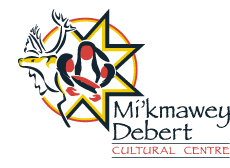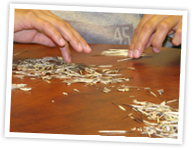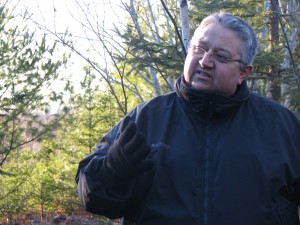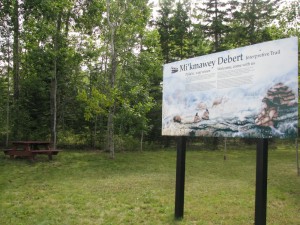The programs and exhibitions at the future Mi’kmawey Debert Cultural Centre (MDCC) will offer opportunities for understanding the relationships between past and present that will support healing in Mi’kmaw communities as well as with our neighbours. In teaching and learning spaces, including the outdoor campus, visitors of all ages may participate in traditional and contemporary Mi’kmaw practices and activities, which will convey the knowledge, heart and humour of our culture and history. These programs and spaces will be the core of the outreach and educational programs on and off site.
Cross Cultural Facilitation (CCF)
Currently the Mi’kmawey Debert project coordinates the Cross Cultural Facilitation (CCF) program which seeks to strengthen resources for Mi’kmaw educators who deliver school programming and presentations across Nova Scotia. This program has been extremely successful, and the demand for the service has been extraordinary.
This year, the MDCC will finish a curriculum resource designed to enrich classroom content and strengthen teaching strategies for delivering this content. Focusing on three subject areas of Healing, Contemporary Issues, and Netukulimk, the CCF program has defined core concepts, developed teaching strategies, and identified resources for three groups of students: Grades Primary to 3, 4 to 6, and 7 to 9.
Cross cultural facilitators and teachers working in and out of Mi’kmaw communities will be able to utilize these units to diversify content across disciplines, while simultaneously reaching specific curriculum outcomes.
Mi’kmawey Debert Interpretive Trail
In September 2003, the Mi’kmawey Debert Interpretive Trail became our first presence in Debert, sharing the history of the Debert sites through explanatory panels and a walk through rich wilderness. The trail has become a community-wide resource — hundreds of guided tours have been provided to students, scholars and the general public by MDCC staff since opening.





 sharing our stories
sharing our stories
Leave a Reply